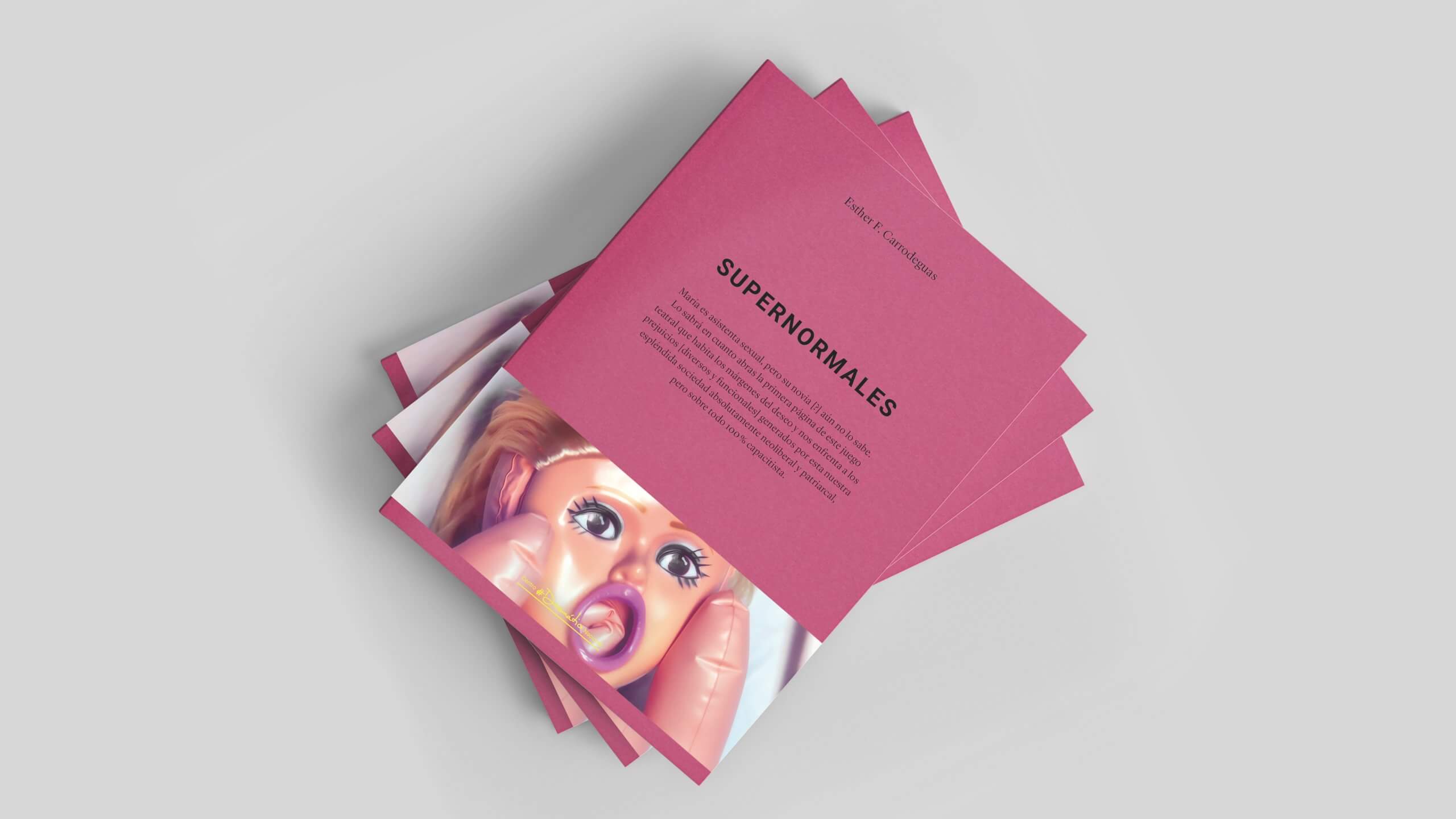
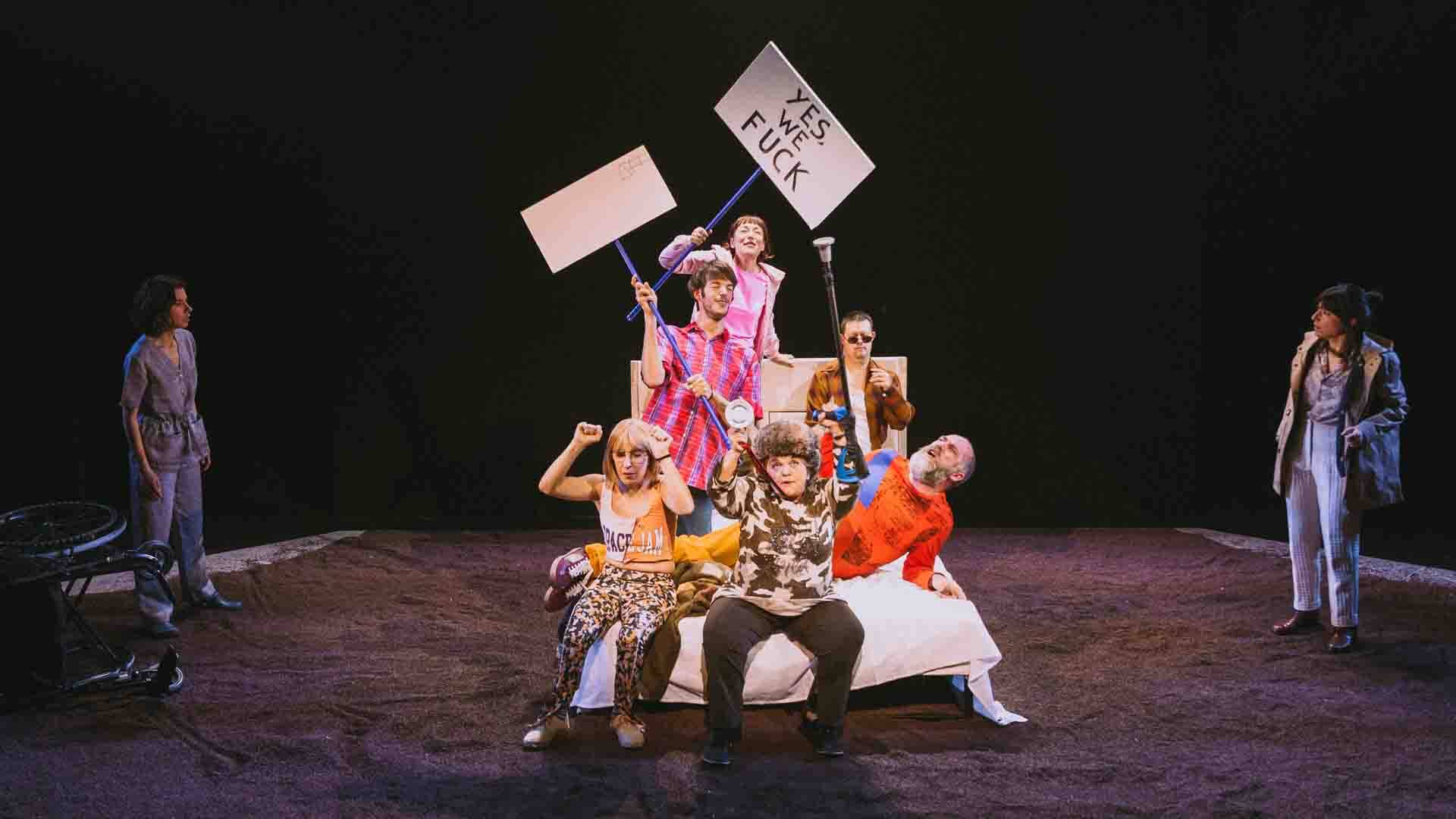

Carta Blanca a Esther F. Carrodeguas With Carlos de la Cruz, Inés Enciso, Enrique García Cortés, Mónica Lamberti, Inma Nieto and Irene Serrano
06 MAY 2023 at 18:00
When I sent the first drafts of Supernormales to the creative group where it was born (in the CDN itself)[1] I instantly became that Watsapp emoji I use so often: the little monkey covering its eyes. I had no idea whether what I had just written was good or something I would have better kept hidden. I even sent the text proposal with another possibility in case they were not interested. But I was extremely lucky that the people who accompanied me in the writing process took the question out of my hands and encouraged me to just get on with it.
However, despite the huge acceptance I felt from the beginning within the working group, every time I sent the text to someone I became the same Watsapp emoji again. It was only with broad acceptance of the piece that I finally managed to share my work without turning into that monkey.
It took me a long time to allow my mother to read it, for example, and only did so when there was no other choice because the CRC was going to perform it! It took me much longer still to allow it to be read by any person I knew to be personally affected by the issue. I excused myself by saying that I wanted to write in freedom, without limitations. How beautiful, the word “freedom”, and how useful for almost anything! It was because of this monkey that I had allowed to set itself up on my back that the days when certain people accepted the proposal turned out to be important.
When the CDN approached me to accept the work I thought it would be nice to invite some of those people who had been involved in those days that were so important for me. I thought it would be nice to start by reading some fragments of that text that had so often turned me into that monkey and to talk face to face with them and with the audience in front of me. I thought it would be nice if the character of The Author finally stopped hiding behind her own characters.
[1] Supernormales was written in the context of the first Dramatic Residencies of the Centro Dramático Nacional. The working group was made up of the other three residents (Cristina Rojas, Joan Yago and Jorge Aznar Canet) and the coordination team of the residences (Alfredo Sanzol, Fefa Noia, Fernando Sánchez-Cabezudo, Fernando Delgado, Aina Tur, Carlota Gaviño, José Martret and Yolanda Pallín).
Moderator: Esther F. Carrodeguas
Participants:
Carlos de la Cruz, doctor in Psychology and Sexologist. Director and lecturer of the UCJC Master’s Degree in Sexology
Inés Enciso, artistic director, cultural manager, and inclusion and accessibility advisor at the CDN
Enrique García Cortés, IT and accessible technology specialist
Mónica Lamberti, , actress in Supernormales
Inma Nieto, actress in Supernormales
Irene Serrano, actress in Supernormales
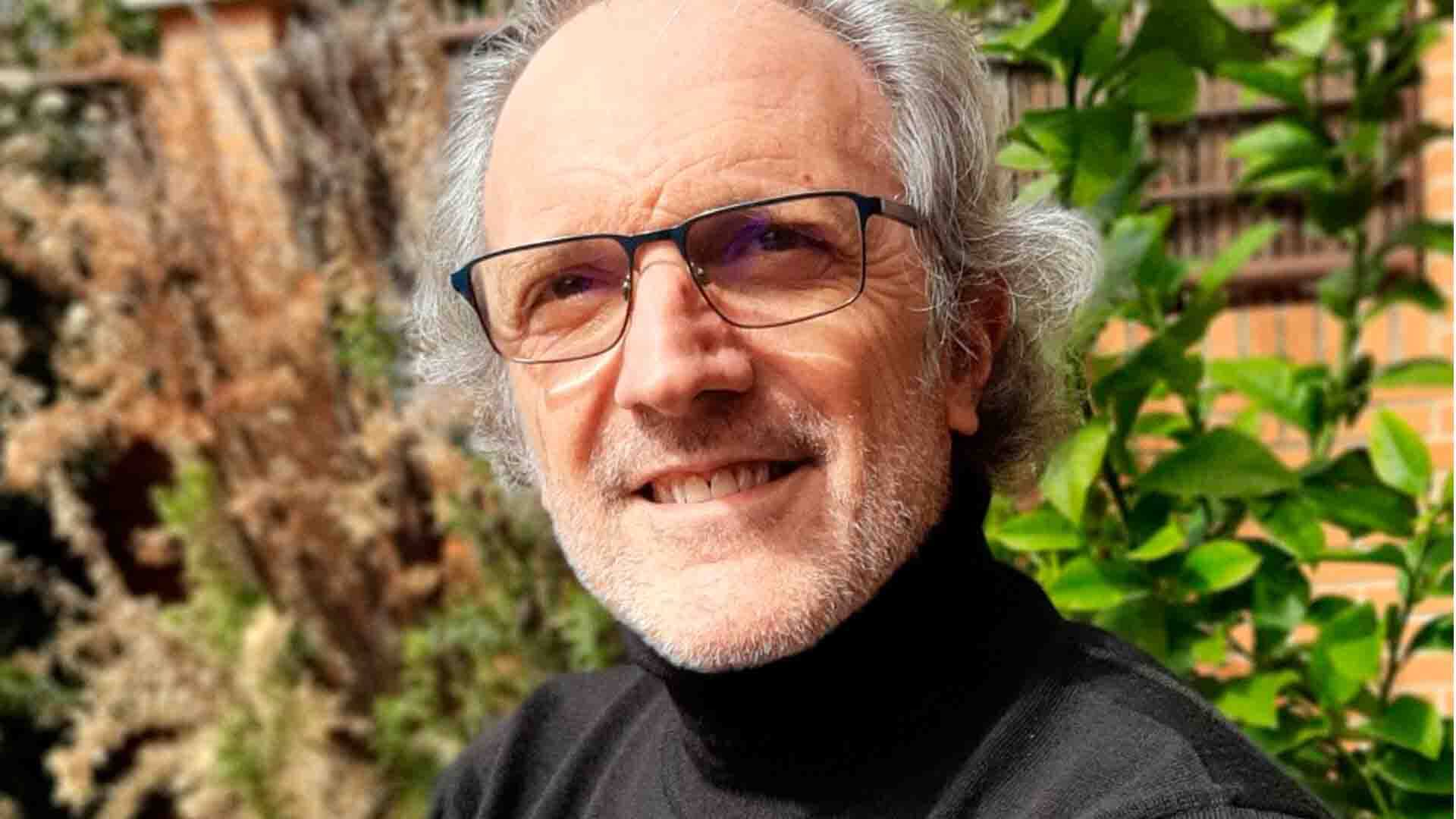
Carlos de la Cruz. Doctor in Psychology and Sexologist. Director of the Master’s Degree in Sexology and collaborator in many training courses such as GATEA, Fundación Quinta, INICO Master’s Degree, etc.
He has been working in the field of Sexology and Sex Education for more than 30 years, collaborating with CEAPA, Youth Councils, etc.
View more
He came to the field of disability almost by chance, discovering that the few sexologists working in the field tend to soon leave after working with limited knowledge.
One thing led to another and he ended up specialising in this field, collaborating with ASPACE, Plena Inclusion, Autism Spain, etc. Author of books such as “Sexualidades que Importan” for family members and “Sexualidades Diversas” for professionals, and co-author of the “Posicionamiento por el Derecho a la Sexualidad de las personas con discapacidad intelectual”, which Plena Inclusion will approve unanimously and which implies moving from taboo to task.
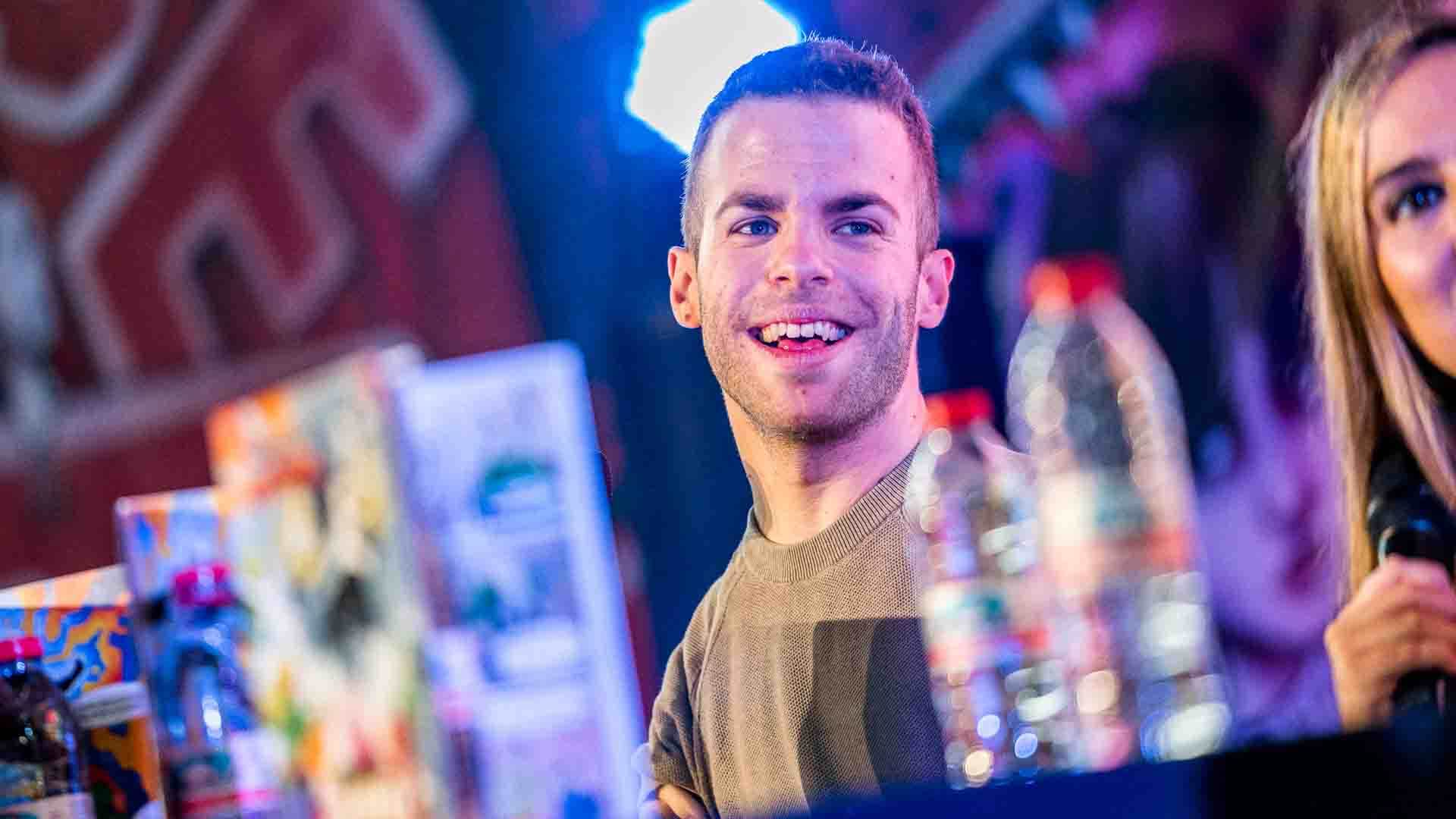
Technician in the Accessible Technologies Department of the Directorate of Universal Accessibility and Innovation of the ONCE Foundation. Responsible for the Ga11y projects: Accessible video games and GOSSA. PhD candidate in Integrated Care and Health Services at the University of Jaén, Master’s in IT Project Management, and a graduate in Computer Engineering from the University of Alcalá de Henares.
View more
In addition to working on emerging technologies and innovation projects on a daily basis, he also works on the normalisation of disability by carrying out actions that promote the inclusion of people with disabilities in society.
Apart from giving motivational and awareness-raising talks, Enrique participated in the short film Operación RAE (2021) and in the spot Quédate con el talento (2019) for the Randstad Foundation and the Atresmedia Foundation. He is currently one of the presenters of Sorteos ONCE on RTVE.
© Marta Portela
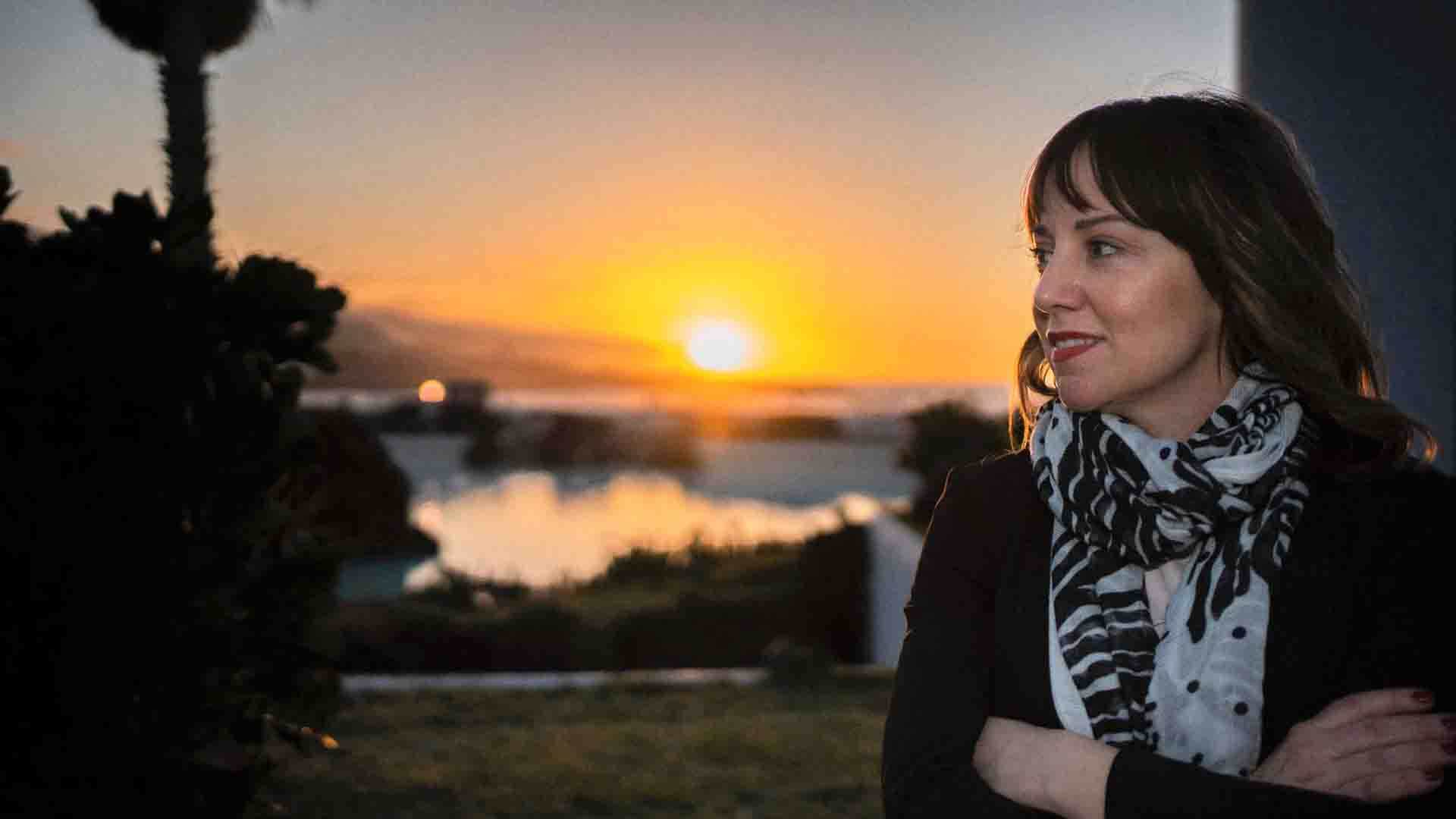
She is a member of the Inclusion and Mediation Commission of the Spanish Network of Publicly Owned Theatres, Auditoriums, Circuits and Festivals. She teaches “Culture and Diversity” with AECID in different Latin American countries and curates the Festival Sin Límites at the Sodre in Montevideo.
She also promotes the Yo Cuento Project at the Niño Jesús children’s hospital. A creative laboratory that brings together patients, family members, doctors and artists.
View more
In 2019 she was awarded the Gold Medal of the Spanish Red Cross for her work in the field of inclusion.
She currently coordinates the Development and Research area of the Film Academy and is Inclusion and Accessibility Advisor at the National Drama Centre.